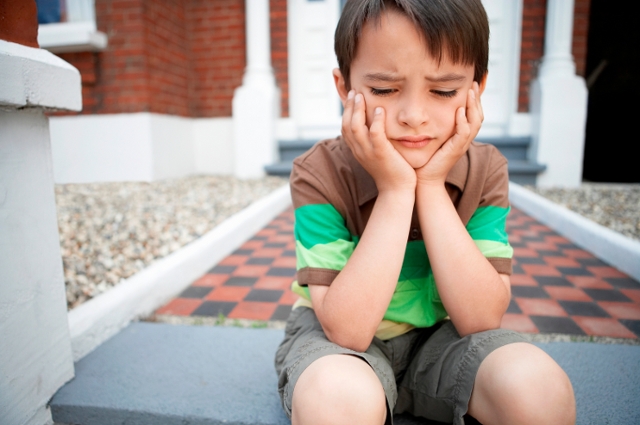Signs & Symptoms of OCD in Childhood
At GroundWork Counseling in Maitland, our child OCD therapist specializes in the treatment of pediatric OCD, using evidence-based ERP and CBT.
 Obsessive Compulsive Disorder (OCD) can occur in children at any age. Although once considered uncommon, new evidence statistically shows that the number of children who have OCD is comparable to the number of children who have diabetes. Approximately 500,000 kids in the U.S. have the disorder and more than 1 in 50 people (including both adults and children) suffer from the disorder.
Obsessive Compulsive Disorder (OCD) can occur in children at any age. Although once considered uncommon, new evidence statistically shows that the number of children who have OCD is comparable to the number of children who have diabetes. Approximately 500,000 kids in the U.S. have the disorder and more than 1 in 50 people (including both adults and children) suffer from the disorder.
The symptoms of OCD can be exhausting and especially unpleasant for children because it can cause a significant amount of worry, anxiety, frustration, and distress. Though the symptoms of OCD are comparable for both adults and children, recognizing OCD in children can be more difficult for a number of reasons; children often don’t recognize their thoughts and rituals to be out of the ordinary, or they may experience significant shame and guilt due to the possible taboo content of their intrusive thoughts. As a result children may not consider asking an adult figure for help, or in some cases, they may confess their thoughts over and over.
Symptoms can seem to interfere with typically aversive tasks, such as schoolwork, which often causes OCD in children to go misdiagnosed and to be mistaken for a behavior or attention issue, such as ADHD. OCD differs from childhood routines (e.g. meals, bedtime) in the sense that the compulsions or rituals become so frequent, intense or upsetting for the child that it impends their daily functioning.
Common obsessions include:
- Fears about bad things happening or doing something wrong
- Feelings that things have to be / have to feel “just right” or even
- Disturbing and unwanted thoughts or images about hurting others /or self
- Disturbing and unwanted thoughts or images of sex
- Worry about germs, sickness, or dying
Common compulsions include:
- Excessive checking or re-checking
- Excessive washing and/or cleaning
- Redoing or ‘undoing’ specific actions
- Repeating actions until they feel “just right”
- Ordering or arranging things
- Touching, tapping, rubbing and counting
- Rituals involving evenness and symmetry
- Mental compulsions (excessive praying, reviewing, thought suppression etc.)
- Frequent confessing or apologizing (typically to a parent)
- Saying lucky words, numbers, or phrases
- Seeking excessive reassurance and constant questioning
It is important to know that a child diagnosed with OCD is not a result of parenting or something that the child did “wrong”, nor will an effective therapist spend a significant amount of time trying to find out what “caused” OCD, as this does not change the course of treatment. It is also important for families to understand that Obsessions are not something that children or teens can simply “snap out of” and compulsions aren’t actions that they can “just stop.” And although there isn’t a cure for the disorder, OCD is highly treatable and manageable through a specific type of Cognitive Behavioral Therapy (CBT) called Exposure and Response Prevention (ERP). Children suffering from OCD don’t have to have a grim future, with the proper treatment children can learn important tools to manage and decrease their OCD symptoms, and can lead happy and productive lives. It is also important to consider that ERP treatment is relatively brief, and years of therapy is not needed.
It is important that when seeking CBT and ERP treatment for your child it is important to work with a practitioner who specializes in the treatment of OCD and has received specific training. Because OCD is a complex disorder, it is important to seek the help of a professional who has advanced knowledge in the disorder, and the proper treatment methods. At GroundWork Counseling in Orlando, our goal is to provide children and teens with OCD treatment that is brief, evidence-based, and effective. Our child anxiety and OCD therapist specializes in the treatment of OCD in children and adolescents and has received extensive training to provide qualified and evidence-based care to children and teens struggling with the disorder.
The treatment for OCD in children and adolescents with OCD follows the same principal methods as treatment for adults with OCD. Through extensive research, a type of Cognitive Behavioral Therapy (CBT) known as Exposure and Response Prevention (ERP) has been found to be the most effective treatment for children, adolescents and adults with OCD. Less than 1% of mental health practitioners (therapists, psychologists, psychiatrists, and physicians) in the country have received specific training in ERP, which often leads families to ineffective treatment options. children, it is critical that children and adolescents with OCD receive treatment by a therapist who has received advanced training and specializes not only in the treatment of OCD, but also specializes in the treatment of children and adolescents. It is important to thoroughly interview a prospective therapist before scheduling an appointment for your child.
Speak With An Orlando OCD Therapist
407-378-3000
Learn More: International OCD Foundation





